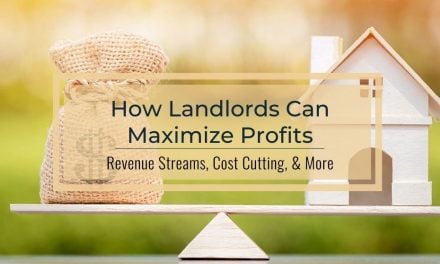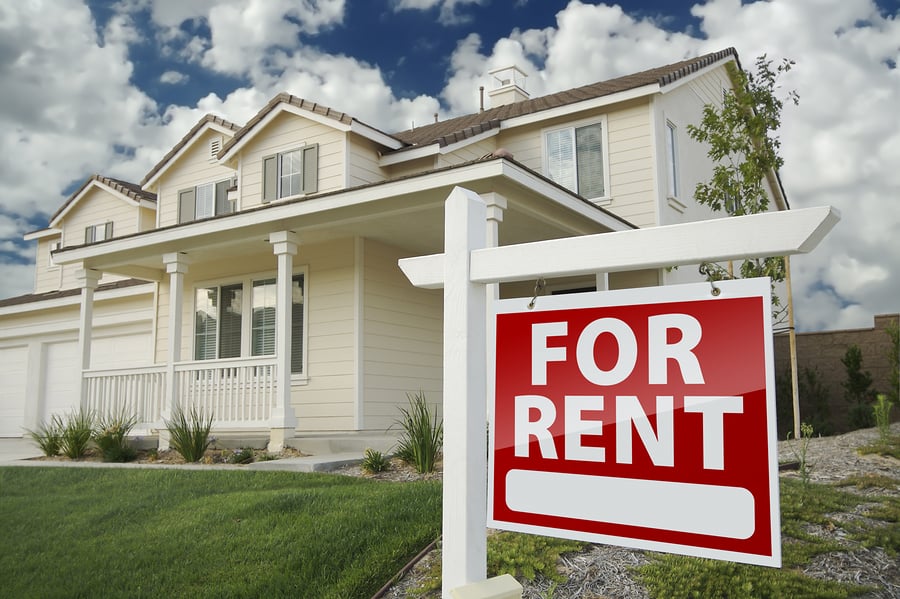
Moving to a new city can be as daunting as it is exciting. Whether work, school, family or adventure drives you to relocate to an unknown town, proper preparation is the best way to make a smooth transition into a new location.
One of the biggest steps for every mover is finding a new place to live. Often times, the best option for relocating involves renting, providing a convenient way to make a transition into unknown territory without the commitment of a house purchase. Renting is an excellent option for individuals or families who want to learn about a new city and the best neighborhoods before deciding to buy a home.
To get a jump start on the moving process and minimize any relocation related stress, here are some tips for finding a great rental property in a new city.
Rental Research
Finding a rental property in a new city involves more than hopping on craigslist and responding to the first “For Rent” ad in your budget. You want to do your research on neighborhoods, building type, management style, affordability, location, lease terms, and desired amenities -like a pet policy or in-unit laundry. Be prepared to answer questions about what you want, so you have a clear objective when you start your rental search process.
It is always a good idea to get a head start on the search process. Depending on your market, rental properties can be able for immediate move in or available in a couple of months. I recommend starting your rental research process 6-8 weeks prior to your move.
In this article, you will find important housing categories to evaluate when looking for a rental home in a new city.
Check out Rent Prices (ie Know the Market)
Understanding the housing market in your new city is a key part of the rental search process. Areas with higher vacancies rates will tend to have lower rent prices and vice versa. San Francisco is notorious for having extremely high rental rates and finding even a decent place to rent in the city is very competitive.
When evaluating a new city, it is always a good idea to understand that rent prices may be very different than the ones in your current town.
Having an open mind, adjusting your budget accordingly, and reconsidering preferred amenities will make the experience more approachable.
In regards to researching a new rental market, starting your rental search process early is important so you can have time to save for a move, or at the very least, time to wrap your mind around the fact that you might be moving from a 1200 square foot home at $1100/month to a 600 sq. ft. apartment for $1200 (which would most likely happen if I chose to move to Portland from where I live now in southern Oregon-yikes!).
Building Type
Rental properties come in all shapes and sizes. Renters have the option of choosing a housing type that fits their lifestyle and budget.
The Washington Post notes that the detached, single-family home is the most popular housing type across the country, but renters will be hard pressed to find them available in big cities.
Apartments
Apartment rentals are often categorized by multiple units in one building. Residents have lots of neighbors living in close proximity with the potential for a strong community. Another benefit with apartments includes onsite management that typically responds to maintenance or emergencies quickly. Apartments tend to be located closer to city centers or convenient transportation options. A con associated with apartments are shared walls and lack of outdoor space, which can be a challenge for pet owners.
Apartment Pros: Strong community, on site management, location, amenities.
Apartment Cons: Shared walls, limited outdoor space.
Single-Family Home
The most common type of housing in America gives renters the option for more square footage, more bedrooms, outdoor space and a suburban type of neighborhood. Single-family homes provides with tenants the best option for privacy. Single-family rental homes located near city centers or in popular neighborhoods will be more expensive and harder to find. But if you are willing to live on the outskirts of town or are moving to a smaller town, they will more common.
Single-Family Home Pros: More space, more privacy, no shared walls.
Single-Family Home Cons: More expensive in town, can be hard to find.
Duplex
Duplexes can look very similar to a single-family home that has been split into two dwellings, typically with private entrances, yards, garages, etc. While they do have a shared wall, a duplex gives tenants more privacy and tend to be less expensive than single family homes.
Duplex Pros: More privacy, less expensive than single-family homes.
Duplex Cons: Shared walls.
Other Building Types
Other types of rental properties can include triplexes or triplexes, small apartments with a few units, or a single room for rent in a home. In general, the bigger rental unit types will have more tenants under the same management and will mean less space or privacy in community areas. Apartment complexes are more likely to have luxury community amenities like business centers, pools, rooftop terraces, etc.
Management Style
Choosing to live in a rental property means you will be living in a home owned by another person. Rentals can be managed by the owner, commonly referred to as a landlord, or by a property manager, a business or individual hired by the owner to manage the property.
Both landlords and property managers are in charge of renting the property, collecting rent payments, keeping the property maintained and safe, and handling emergencies. Some renters have strong preferences for working with either a landlord or property manager.
- Property managers will have professional processes for maintenance requests, lease renewals and tend to be more strict with enforcing lease terms, like late fees for rent and have experience with processing evictions. Property managers can also have hundreds or thousands of other properties and tenants, so your needs will fall in line of their systems priorities.
- Renting directly from an owner, or landlord, can sometimes give a tenant the option to develop a personal relationship with the management. Some landlords will manage their property exactly like a property management company, with firm processes and strictly enforced rental rules. It depends on their involvement and commitment to their investment property. When renting from a landlord you also have a direct line of communication to the owner when any maintenance emergencies pops up, a landlord will respond in kind because it is his property (and expense) that is at risk of damage.
Rental Budget
While you should have an idea of what you can afford before you start your rental search process, you may find you need to adjust your budget after looking at the amenities, location and market rates of your new rental location.
Property managers and landlords will look at your income when evaluating your rental application, and the industry standard for a qualifying income level is typically 3x the rental rate. In other words, you should budget about 30% of your monthly income for housing.
It is important that every renter understand there are expenses that need to be factored into their budgets in addition to a rent payment.
Items like move-in costs, deposits, one time fees, recurring fees, and utility payments all need to be considered when determining how much a renter can afford to pay when deciding where to live.
A good landlord or manager will not try to trick a tenant into signing a lease without the tenant’s full understanding of all the costs associated with living in the rental property.
- Learn More >> The True Cost of Renting an Apartment
Location
An obvious factor when selecting a new rental home involves finding the right location. This may be one of the most valuable pieces of research you conduct during your rental search process. Property managers and landlords are advised to include neighborhood highlights and walkability scores in rental advertisements.
Renters can use tools like Google Maps, PadMapper, or WalkScore to discover what services are located near available rentals. An internet search for “Best Neighborhoods to live in [city]”, will help find local publications or reviews of great places to live in a new city.
Lease Terms
A lease is a binding, legal agreement that you enter into when renting from a property manager or owner.
While every lease may be different, there are numerous things to look for when deciding whether you should sign the lease. A lease agreement will outline general items like when rent is due and late fee policies, and also property rules, like what is allowed on patios and how long overnight guests are allowed to stay. Once you sign the lease contract you agreeing to abide by those terms, throughout the entirety of the lease length. Violation of any item in a lease can null the contract and may result in fines or an eviction.
Some of the most important lease terms to consider are the pet policy outlined in the lease, rules for smoking, rent payment due dates, late fee policies, length of lease and painting the property.
Length of lease
Determine the length of time you are looking to rent, as many properties require minimum lengths of stay, generally for 6 months to a year. If you want or need a month-to-month rental, your options may be reduced and you should expect slightly higher fees.
Know Your Renter Rights
Renters are protected by landlord-tenant laws that are enforced at the federal, state and local level. Landlord-tenant laws give renters certain rights for habitual living and freedom from discrimination.
A study from Zillow, found that both landlords and tenants lack understanding of laws around security deposits, credit and background checks, privacy and rights of access, and how to manage an early lease termination.
Every renter, whether a novice or experienced tenant, will benefit from brushing up on the local landlord-tenant laws and renter rights in the town to which you are moving.






Thanks a ton for this post. For higher education, I need to move to a new city in next month. I am pretty sure to find a great place by following your tips. Keep posting.